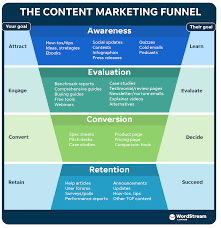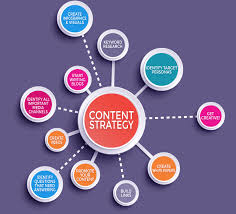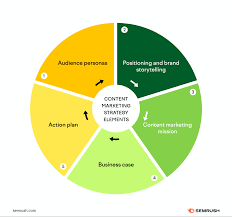Mastering the Art of Digital Content Creation: Strategies for Success in the Online Realm
The Power of Digital Content Creation
In today’s digital age, creating compelling and engaging content is more important than ever. With the rise of social media, websites, blogs, and other online platforms, businesses and individuals have a plethora of opportunities to reach their target audience through digital content.
Digital content creation involves producing various forms of content, such as articles, videos, infographics, podcasts, and more, with the aim of attracting and engaging online users. The key to successful digital content creation lies in creating content that is relevant, valuable, and resonates with the target audience.
One of the main benefits of digital content creation is its ability to increase brand visibility and awareness. By consistently producing high-quality content that aligns with your brand values and messaging, you can establish your brand as an authority in your industry and build trust with your audience.
Moreover, digital content creation allows you to connect with your target audience on a more personal level. Through storytelling and engaging visuals, you can create an emotional connection with your audience and drive them to take action, whether it’s making a purchase, signing up for a newsletter, or sharing your content with others.
Another advantage of digital content creation is its cost-effectiveness compared to traditional marketing methods. With the right strategy in place, you can reach a wider audience at a fraction of the cost through online channels. Additionally, digital content can be easily repurposed and shared across multiple platforms to maximise its reach and impact.
In conclusion, digital content creation plays a crucial role in today’s marketing landscape. By investing time and resources into creating high-quality and engaging content that resonates with your target audience, you can drive brand awareness, build credibility, and ultimately achieve your business goals in the digital realm.
Mastering Digital Content Creation: 9 Essential Tips for Engaging Your Audience
- Understand your target audience and create content that resonates with them.
- Focus on creating high-quality and engaging visual elements such as images and videos.
- Optimize your content for SEO to improve visibility and reach a wider audience.
- Consistency is key – maintain a regular posting schedule to keep your audience engaged.
- Utilize storytelling techniques to make your content more compelling and memorable.
- Engage with your audience by responding to comments, messages, and feedback promptly.
- Collaborate with influencers or other creators to expand your reach and attract new followers.
- Monitor analytics regularly to track the performance of your content and make data-driven decisions for improvement.
- Experiment with different types of content formats (e.g. infographics, podcasts) to keep your audience interested.
Understand your target audience and create content that resonates with them.
To succeed in digital content creation, it is essential to thoroughly understand your target audience and tailor your content to resonate with their needs, interests, and preferences. By conducting thorough research and analysis, you can gain valuable insights into the demographics, behaviours, and motivations of your audience. This understanding enables you to create content that is relevant, engaging, and valuable to your target audience, ultimately driving better engagement, loyalty, and conversions.
Focus on creating high-quality and engaging visual elements such as images and videos.
In the realm of digital content creation, it is paramount to concentrate on crafting top-notch and captivating visual elements, such as images and videos. Visual content has the power to grab the audience’s attention quickly and leave a lasting impression. By focusing on creating visually appealing and engaging images and videos, you can enhance the overall impact of your content, increase user engagement, and effectively convey your message to your target audience in a memorable way.
Optimize your content for SEO to improve visibility and reach a wider audience.
To maximise the impact of your digital content creation efforts, it is essential to optimise your content for SEO. By incorporating relevant keywords, meta tags, and other SEO best practices, you can improve the visibility of your content in search engine results. This not only helps in attracting organic traffic to your website but also enables you to reach a wider audience who are actively searching for information related to your industry or offerings. Investing time and resources into SEO optimisation can significantly enhance the reach and effectiveness of your digital content, ultimately driving better engagement and conversions.
Consistency is key – maintain a regular posting schedule to keep your audience engaged.
In the realm of digital content creation, consistency is paramount. By adhering to a regular posting schedule, you can effectively engage your audience and maintain their interest over time. Consistency not only helps establish a sense of reliability and professionalism but also ensures that your audience knows when to expect new content from you. This practice builds trust and loyalty among your followers, ultimately contributing to the success of your digital content strategy.
Utilize storytelling techniques to make your content more compelling and memorable.
By incorporating storytelling techniques into your digital content creation, you can enhance the impact and resonance of your message. Storytelling adds a human touch to your content, making it more relatable and engaging for your audience. By weaving narratives into your content, you can create a connection with your readers or viewers, making the information more memorable and compelling. Stories have the power to evoke emotions, capture attention, and drive action, ultimately helping you to stand out in the crowded digital landscape and leave a lasting impression on your audience.
Engage with your audience by responding to comments, messages, and feedback promptly.
Engaging with your audience by responding to comments, messages, and feedback promptly is a crucial tip in digital content creation. By actively interacting with your audience, you not only show that you value their input and opinions but also build a stronger connection with them. Prompt responses demonstrate that you are attentive to their needs and concerns, fostering trust and loyalty. This two-way communication not only enhances the overall user experience but also provides valuable insights that can help tailor your content to better meet the expectations of your audience.
Collaborate with influencers or other creators to expand your reach and attract new followers.
Collaborating with influencers or other creators is a powerful strategy to enhance your digital content creation efforts. By partnering with individuals who have a loyal following and influence in your target market, you can significantly expand your reach and attract new followers. Influencers bring their unique voice and perspective to the table, helping to amplify your message and increase engagement with your content. This collaboration not only introduces your brand to a wider audience but also adds credibility and authenticity to your content, making it more appealing to potential followers. Leveraging the reach and influence of others through collaboration can be a game-changer in growing your online presence and connecting with new audiences.
Monitor analytics regularly to track the performance of your content and make data-driven decisions for improvement.
Monitoring analytics regularly is a crucial tip in digital content creation. By tracking the performance of your content through data analysis, you can gain valuable insights into what resonates with your audience and what can be improved. This data-driven approach allows you to make informed decisions on how to optimise your content strategy for better engagement and results. Regularly monitoring analytics not only helps you understand the impact of your efforts but also enables you to adapt and refine your content to meet the evolving needs and preferences of your audience effectively.
Experiment with different types of content formats (e.g. infographics, podcasts) to keep your audience interested.
To keep your audience engaged and interested, it is essential to experiment with various types of content formats, such as infographics and podcasts. By diversifying the content you produce, you can cater to different preferences and capture the attention of a wider audience. Infographics are visually appealing and can convey complex information in a simple and engaging way, while podcasts offer a more immersive and auditory experience for your audience. By incorporating different content formats into your digital content creation strategy, you can maintain freshness and creativity in your content, ensuring that your audience remains captivated and eager for more.








